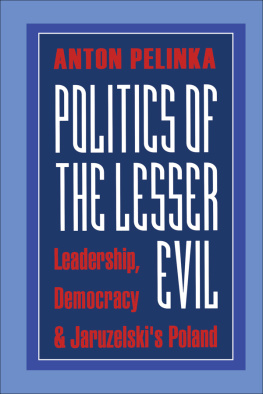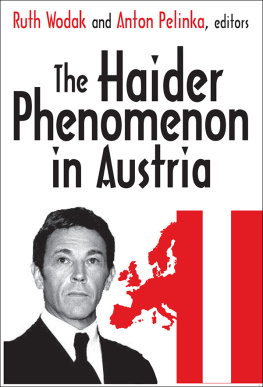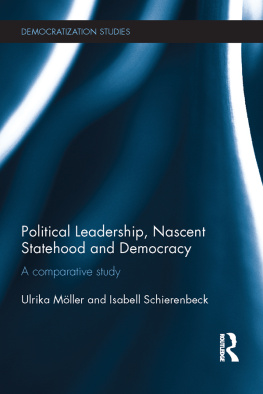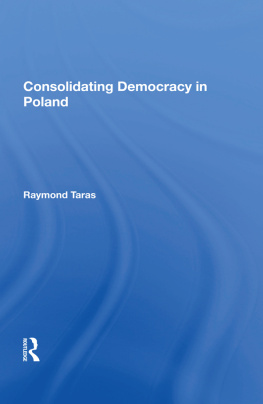Anton Pelinka - Politics of the Lesser Evil: Leadership, Democracy, and Jaruzelskis Poland
Here you can read online Anton Pelinka - Politics of the Lesser Evil: Leadership, Democracy, and Jaruzelskis Poland full text of the book (entire story) in english for free. Download pdf and epub, get meaning, cover and reviews about this ebook. year: 1999, publisher: Routledge, genre: History. Description of the work, (preface) as well as reviews are available. Best literature library LitArk.com created for fans of good reading and offers a wide selection of genres:
Romance novel
Science fiction
Adventure
Detective
Science
History
Home and family
Prose
Art
Politics
Computer
Non-fiction
Religion
Business
Children
Humor
Choose a favorite category and find really read worthwhile books. Enjoy immersion in the world of imagination, feel the emotions of the characters or learn something new for yourself, make an fascinating discovery.
- Book:Politics of the Lesser Evil: Leadership, Democracy, and Jaruzelskis Poland
- Author:
- Publisher:Routledge
- Genre:
- Year:1999
- Rating:4 / 5
- Favourites:Add to favourites
- Your mark:
Politics of the Lesser Evil: Leadership, Democracy, and Jaruzelskis Poland: summary, description and annotation
We offer to read an annotation, description, summary or preface (depends on what the author of the book "Politics of the Lesser Evil: Leadership, Democracy, and Jaruzelskis Poland" wrote himself). If you haven't found the necessary information about the book — write in the comments, we will try to find it.
In his pathbreaking book, Leadership, James MacGregor Burns defines a kind of leadership with an indistinguishable personal impact on society. He calls this transformal leadership, and sees it as more than routine and calculable responses to demands. In fact, he argues, the more stable a liberal democracy, the less freedom of action for transformal leadership. Anton Pelinka uses a wellspring of historical fact to argue that politics always means having to choose between the lesser of two evils and that democracy reduces any possibility of personal leadership.
According to Pelinka, Jaruzelskis politics of democratization in Poland in the 1980s (which led to the first free and competitive elections in a communist system) illustrate personal leadership hampered by democracy. Jaruzelski initiated the roundtable process that transformed Poland into a democracy; yet, this process ultimately ended with his abdication. Pelinka further emphasizes contradictions between transformal leadership and democracy by comparing the leadership styles of Hitler, Stalin, and Mao. He de-.scribes collaboration, resistance, and tensions between domestic and international leadership, using the American examples of Presidents Wilson, Roosevelt, Kennedy, Johnson, and Nixon and the European examples of Petain and Churchill. Pelinka then turns to the tragic fate of the Judenrate under the Nazi regime to illustrate the lesser-evil approach. He closes with a discussion of moral leadership and how abstaining from office, just as Gandhi and King did, may be particularly suited to stable democracies.
Pelinkas unique use of rich empirical evidence from twentieth-century history is this volumes hallmark. He is critical of mainstream political theory and its neglect of deviant examples of democracies--such as Switzerland, Italy, and Japan, where there is traditionally much less emphasis placed on leadership. Pelinkas noteworthy study will be essential reading for political scientists and theorists, political philosophers and political sociologists with special interest in political ethics, and contemporary historians.
Anton Pelinka: author's other books
Who wrote Politics of the Lesser Evil: Leadership, Democracy, and Jaruzelskis Poland? Find out the surname, the name of the author of the book and a list of all author's works by series.












